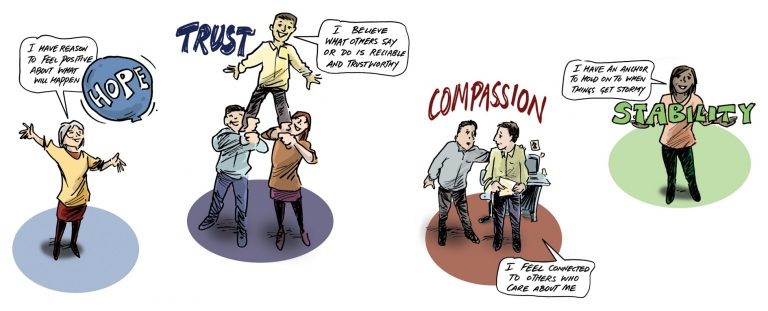Staying Emotionally Connected in the New Remote Work World
09 December, 2021
By Iulia Pietruschevici, Managing Partner, Iventa (Romania)

As the shock and psychological stress of the initial months of the COVID-19 pandemic have become a thing of the past, employees have adapted to remote work and their behavioral patterns are changing towards a new lifestyle that thrives on it.
Companies are also keeping pace with this shift. In the February 2021 Report by Mckinsey on “The Future of Work after COVID-19”, it was found that about 20 to 25 percent of the workforces in advanced economies could work from home between three and five days a week, without any loss of productivity. Moreover, in an article published in May 2021, McKinsey says that in the post-pandemic future of work, nine out of ten organizations will be combining remote and on-site working, with employees expected to be on-site between 21 and 80 percent of the time, or one to four days per week.
Yet, for any organization’s health, having employees that are emotionally connected to the company remains as important as ever. Traditionally, emotional engagement has been strongly associated with physical proximity and most programs designed to increase emotional engagement rely on activities that imply physical interactions (e.g. teambuilding and social events, brainstorming sessions, offsite meetings, etc.).
So, is it harder to nurture emotional engagement in the new world of remote and hybrid work? What can leaders do about it?
We took a close look at a number of employee engagement models that have been developed over the past 20 years. Perhaps the most compelling through its simplicity is the one developed by Tom Rath and Barry Conchie and described in their book “Strengths Based Leadership: Great Leaders, Teams and Why People Follow”. According to them, the four needs that employees have from their leaders in order to be engaged and connected to their employers and their work are: Trust, Compassion, Stability and Hope.
Four Key Factors: Hope, Trust, Compassion, Stability
Cartoon illustrations by Simon Kneebone

These needs were discovered further to extensive research that involved 10,000 in-depth interviews carried out between 2005 and 2008 and the book was published at the end of 2008, amid the global financial crisis. Over the past decade, they have been incorporated into practically all employee engagement models currently in use.
The very good news is that all four needs can be fully addressed even in the remote or hybrid work setting. It only takes some focus and determination for leaders to develop and nurture behaviors within their companies that address these basic needs.
_______________________
Iventa is an Austrian executive search and human resources consulting firm with strong expertise and resources across several Central and Eastern European countries. Over more than 25 years we have been partners for the growth of many businesses and leaders across the Region.

